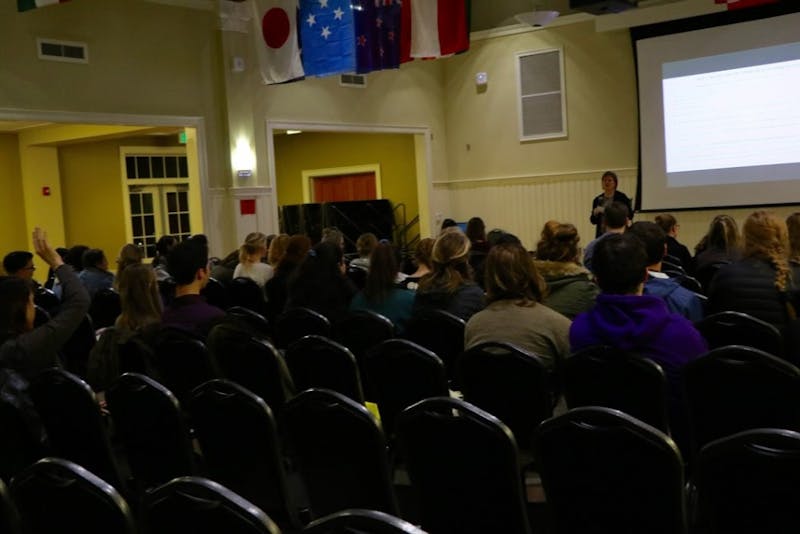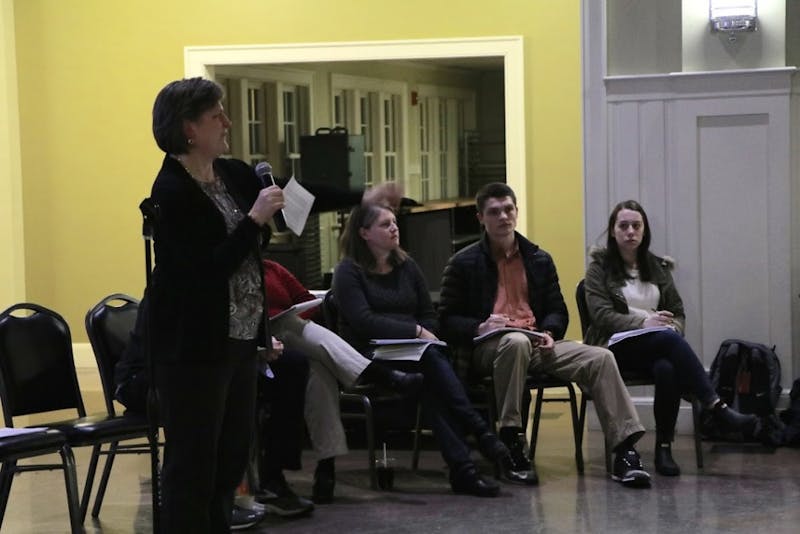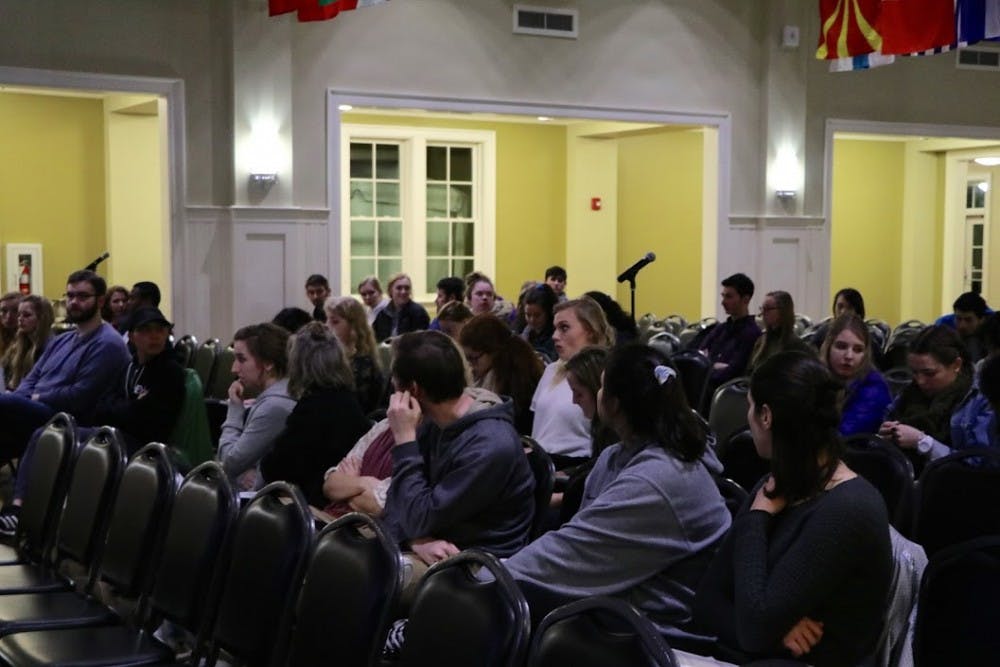Students came with a variety of recommendations for resources that they’d like to see added at the University of Portland at the Ad Hoc Committee on Title IX’s listening session Wednesday night. Student sexual assault survivors, advocates and those who were just curious were all in attendance, and many voiced their frustrations that the event was held in the middle of midterms week, when other students may have been unable to attend.
University President Fr. Mark Poorman formed the committee in November to review the University’s policies and procedures relating to Title IX, a federal anti-discrimination law.
All of the committee members were in attendance Wednesday night except political science professor Anne Santiago, and took notes throughout the evening. The hour-long session included impassioned speeches from several students seeking policy change, as well as some attempt at back-and-forth conversation, though committee members had made clear at the beginning that they were just there to listen.
Students noted the need for more resources on campus that are confidential, and that female students would feel comfortable talking to.
“It’s not acceptable for one of the main resources to be a priest,” one student said, continuing that many people would be afraid to talk about having been assaulted to a priest, when the Catholic Church looks down on extramarital sex.
She said students want more female and non-religious confidential sources, and expressed concern that the only confidential, in-person resource in residence halls are the pastoral residents.
Many attendees also reiterated the need for a full time Title IX Coordinator.

One student suggested that there be a position below the Title IX Coordinator who can offer emotional support to victims of sexual violence, in addition to the Title IX Coordinator, whose job is to remain neutral to both the reporting and responding parties. She suggested the committee look to other universities that have already implemented such a position, notably Reed College, who has a Assistant Dean of Sexual Assault Prevention and Response that is separate from their Title IX coordinator and is in charge of providing support and resources to victims.
Many of those who attended the panel expressed concern over the education and training that SAFE Advocates (confidential, trained student advocates for victims of sexual violence) and Hall Staff receive. One suggestion was that there needs to be more comprehensive education for all students, faculty and staff on what to do when a sexual assault occurs, including lessons in victim support, contacting Portland Police and preservation of crime scene.
Many students expressed the need for more transparency as to what sort of training various resources are receiving and the quality of that training. Associate Vice President of Student Development Matt Rygg, who is on the panel, did respond to these concerns, saying, “all hall staff have been through extensive training”.
Several students voiced concerns about the accessibility of sexual assault resources. It takes five clicks on the main university website to access the name and contact information for the Title IX coordinator and other similar resources - a fact that one student called “ridiculous”. Another also said she feels the process of reporting a sexual assault is unclear and turns students away from reporting.
Another topic that was brought up by more than one student was Life on the Bluff’s policy regarding sexual intimacy and the Catholic view on premarital sex. Students argued that the Student Handbook’s guidance on sexual intimacy adds another layer to the discomfort students feel coming forward to report sexual assault.
The section in Life on The Bluff reads: “Guided by the teaching of the Catholic Church, the University believes the fullness of sexual intimacy exists only within a marriage. Sexual intimacy outside of marriage is an inappropriate and incomplete expression of love, and such intimacy does not reflect full dignity of self and others. Consequently, acts of sexual intimacy outside of marriage are contrary to the values and mission of the University of Portland.”
Students also said that the handbook’s definition of consent could use updating to reflect an affirmative, verbal consent rule.

Junior Courtney Schmidt had brought pages and pages of notes she had made in preparation for the event, but said she was disappointed by the constraints of what she was allowed to discuss.
“Some of the rules and stipulations that the committee put forward in the agreements for the student listening session put a roadblock in the way,” Schmidt said. “For example, I wrote out an entire speech with requests that I had specifically intertwined with my case and I think that would have really driven things home.”
Although disappointed by the constraints of the session and the poor timing during midterms week, she said she appreciated the effort: “I’m glad the committee had this instead of just an online survey, seeing faces really drives it home.”
“I feel like the panel was very proactive and going in the right direction,” Freshman Janine Rook said, “but I think they should have a Q&A where they answer our questions, not just redirect them elsewhere.”
In Poorman’s initial email to the campus community about the panel in November, he said the committee would give their recommendations by the end of March. Committee Chair Elise Moentmann told audience members at Wednesday’s event that the committee’s next step is to asses all the input given by the UP community and present their recommendations to Poorman by mid-April.








